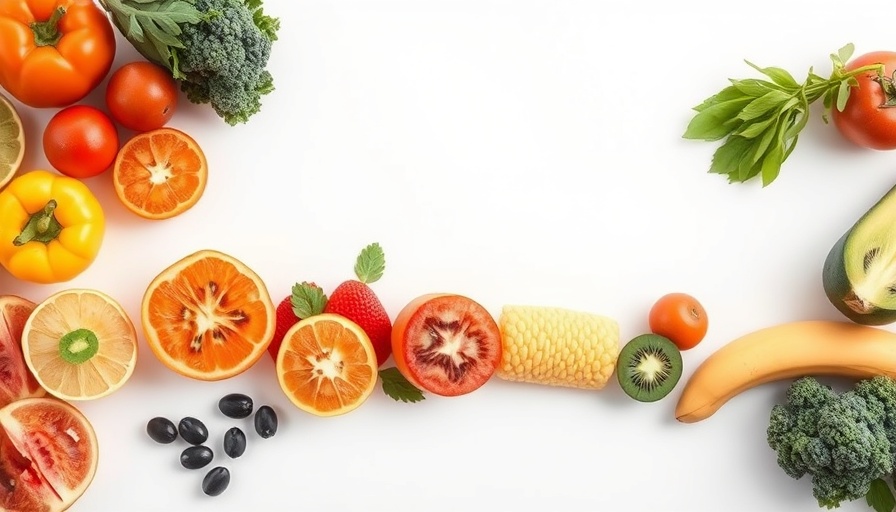
Do Fruits and Vegetables Really Enhance Your Mood?
Many of us associate the words "health" and "well-being" with fruits and vegetables, but how strong is the connection between what we eat and our happiness? Current research suggests it might be quite significant. In fact, a systematic review highlights that increasing the intake of fruits and vegetables can lead to improved feelings of satisfaction and life enjoyment, akin to the psychological benefits of securing a job. This connection opens new conversations in the realm of nutritional psychology, turning our attention to dietary habits as a pathway to better mental health.
The Importance of Psychological Well-Being
Psychological well-being isn't just about avoiding mental health disorders; it encompasses a broader range of factors that contribute to happiness and life satisfaction. According to research published in the Annals of Nutrition & Metabolism, consuming more fruits and vegetables is associated with these enhanced factors. But what if instead of mere correlation, we could establish that these food choices actively foster positive psychology?
Fruits and Vegetables: A Path from Correlation to Cause
Critics of dietary research often argue that people who consume healthier foods might already have better mental health due to personality traits or upbringing. However, recent studies have adjusted their approach to circumvent these biases. By tracking changes in mood associated with increased fruit and vegetable consumption, researchers discovered a clear trend: as people eat healthier, their life satisfaction similarly rises. In fact, an increase of just eight servings of fruits and vegetables a day led to a measurable improvement in happiness, akin to moving from unemployment to having a job.
International Evidence: A Global Perspective
This isn't just a localized phenomenon. Research conducted in Australia has been mirrored in the UK, where results suggested that Brits might need to consume even more—about 10 to 11 servings daily—to gain similar benefits. These findings reinforce the idea that a healthy diet transcends cultural boundaries and plays a universal role in enhancing mental wellness.
Can Eating Fruits and Veggies Shield Against Mental Illness?
One of the most critical angles of this research is its implication for mental health disorders. Studies indicate that regular consumption of fruits and vegetables may mitigate the risk of clinical depression and anxiety. An extensive review showed that a mere increase of 100 grams of fruit daily—approximately half an apple—was associated with a reduced risk of depression by 3%. Yet shockingly, less than 10% of Western populations consume the recommended levels of fruits and vegetables. This gap highlights a significant area for public health intervention.
Breaking Down Barriers to Healthy Eating
Despite these clear benefits, the challenge remains: how do we encourage healthier eating habits? It’s not just about informing the public about these benefits; it also involves shaping our food environments and addressing accessibility. Farmers' markets and local food initiatives can play a pivotal role by not only providing fresh produce but fostering community connections that reinforce the importance of a healthy diet.
Action Steps for Individuals
If you're looking to boost your mood, consider simple lifestyle changes. Start with small, manageable goals: aim for at least one serving of fruits or vegetables at each meal. Try new recipes that include a variety of colorful produce. Involve friends or family in your journey to create a supportive environment where healthy eating flourishes.
From the data, we see a clear link between a diet rich in fruits and vegetables and improved mental well-being. By making simple changes today, we can pave the way for a happier and healthier tomorrow.
 Add Row
Add Row  Add
Add 




Write A Comment